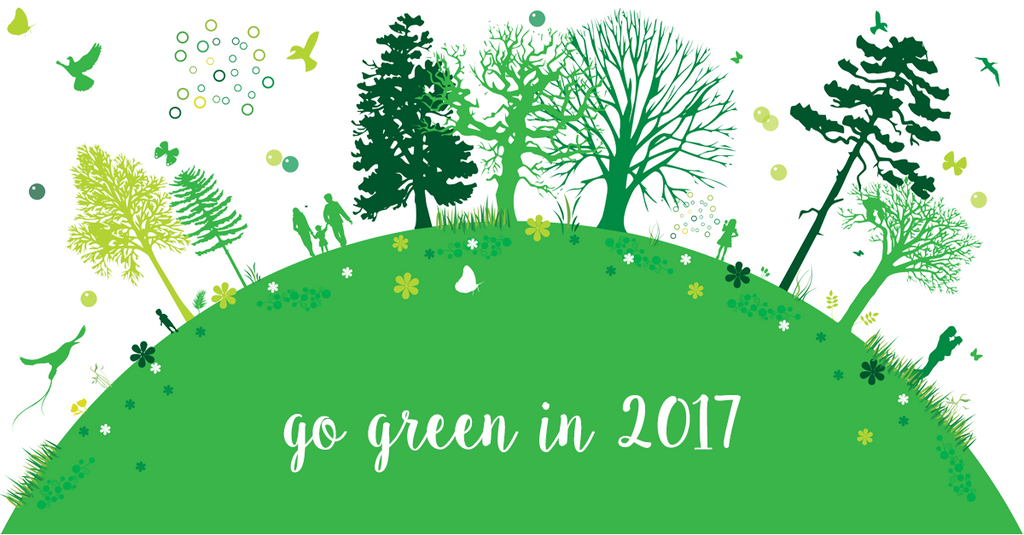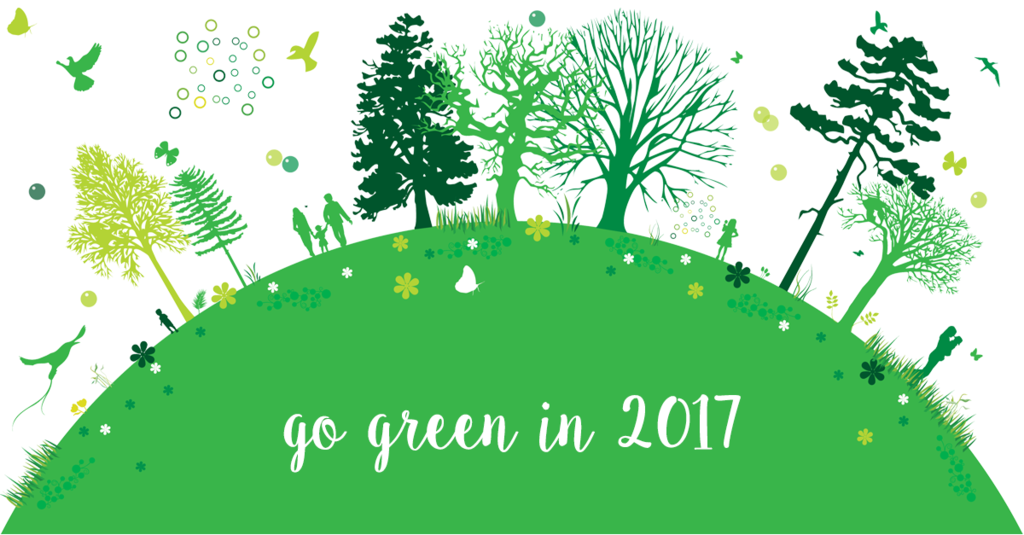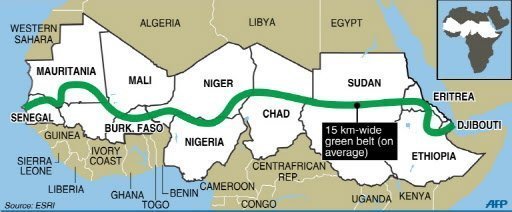What are your resolutions for 2017? For me, the previous year was one I dropped many practices that affect the natural functionality of the ecosystem and joined a campaign to raise the pitch on how only sustainable practices can guarantee our collective future and how so many practices we called ‘normal’ before are harming the environment. This year, I have pledged to do much more than I did in 2016.
On the first day of this year, 2017, my very wonderful friend called to ask what my resolutions are for the New Year. After some deliberations, she complained how her social media timeline is flowing with ‘New Year, New Me’ display pictures and messages from her followers “as if they won’t revert to their old selves after January”. As usual, I laughed and sought her to remain environmentally conscious. This inspired me to write on some of our practices that are not so friendly to the environment.

I want us all to pledge to drop any and every practice that is environmentally unsustainable. Some of these practices are highlighted below
Water Mismanagement
In one of my previous posts last year, I wrote quite an extensive article on water over abstraction (uncontrolled digging up boreholes). Many communities in Nigeria grapple with water scarcity as the government does not live up to its responsibility of providing potable pipe borne water.
In some uptown societies, available water is either government provided through water board agency or from secondary sources and in abundance. Consequently, you find that many residents in such societies not properly managing this life giving resource. As far as the former is concerned, this is unforgivable! Water mismanagement doesn’t just end there; it has effects on the natural functionality of the environment. It causes drought, erosion and even flood.
Electricity overconsumption
Power overconsumption has both economic and environmental impacts. When you waste electricity, you have scored an incredible own goal. In 2017, pledge to use power resourcefully to save money and the environment.

I called my friend, Bello, to inquire if there was light in his house so I can rush to do some work and his reply was “yes, light dey here dey waste” (meaning we have it in abundance here). Many at times we overconsume electricity without us knowing. We leave the light bulbs on, switches on, appliances running even when not in need.
From unsustainable sources of obtaining water and fuels, dealing with the steam waste they generate, the monumental pollution involved and harm to aquatic and natural wildlife, power generation itself is harmful to the environment. My friend and Green Habitat Initiative co-founder, Sadiq Gulma wrote a wonderful piece on power usage here.
Composting/ not recycling
While some cities in the world have run out of wastes and are now importing wastes to keep their recyclers running, Abuja alone generate 1,338 tons of waste is daily and dumped in landfills within the city. Green Habitat’s researcher and Director of Business Development, Adamu Abdullahi earlier wrote a piece on this platform on waste recycling. To convert waste to wealth, GHI Director, Sadiq also wrote an article here
Pollution
This is one we all are guilty of at varying degrees. From throwing things away indiscriminately, loud use of music and PA system (especially our religious institutions), burning fuels through many, many media. We all are guilty of pollution. Our actions that have aided in polluting our ecosystem are so vast that it is itself a topic to write about. Sada Haruna wrote about how the indiscriminate throwing away of wastes block the drainages and cause flooding in many cities.
Deforestation
For different reasons humans fell trees to either produce finished products (paper products, timber, firewood etc.), to provide food (agriculture) or for developmental purposes due to ever increasing population growth and urban sprawl (Find my piece on urbanization here). Trees maintain some balance in the ecosystem where they provide us with cleaner air, serve as wind breaks and home for diverse species. Cutting them down indiscriminately without planting replacement for any reason whatsoever is an abuse to the environment. One major own goal mankind scores consistently.
Unkempt environment (no environmental sanitation)
The outbreaks of pests and diseases and disease causing pathogens have been associated also with dirty and unkempt environments. There were those years where environmental sanitation was compulsory and enforceable. Not many states in Nigeria still observe this practice.
With effective sanitation, our communities are cleaner, fresher, saver and much healthier and eliminate breeding places for disease causing organisms. Doing your part in cleaning your environment is very good, but there is need to call upon every member of the society to do theirs as well.

We call on the government at all levels to re-enforce environmental sanitation.
Using too much plastic products
When we go shopping, we collect so much plastic and end up dumping them in the trash bins. Likewise, we prefer to buy plastic water and soft drinks than bottled ones. These plastics which are usually recyclables end up being thrown in the environment which takes so over 50 years to decompose. plastic bottles take as much as 200 years to completely decompose. Another source of plastic disposal of environmental concern is the sachet water bags otherwise called ‘pure water’. GHI co-founder Sada Haruna wrote a piece on this. It can be found here.
The past years have been dubbed some of the hottest years in recorded history and have been associated with man’s interaction with the environment. To save the environment and guarantee a better future for generations yet unborn, the responsibility rests on our shoulders. This year, I have renewed my pledge to drop all practices that rather harm the environment and alter its natural functionality and only adopt those that will reduce the rate of global warming. I want you to join me in this quest. Together we can achieve better results.
Cheers to a sustainable 2017! Godspeed as we strive to achieve this.
Blog written by Abdulmumin
 Abdulmumin Tanko has a master’s degree in Civil Engineering with an insatiable desire for research and writing. A staunch environmental enthusiast and a fervent campaigner for environmental consciousness, he works to break the silence and end the nescience, largely responsible for environmental indiscretion. . He believes that a serene and safer environment begins with YOU. Follow him on Twitter @Tikaysmalls
Abdulmumin Tanko has a master’s degree in Civil Engineering with an insatiable desire for research and writing. A staunch environmental enthusiast and a fervent campaigner for environmental consciousness, he works to break the silence and end the nescience, largely responsible for environmental indiscretion. . He believes that a serene and safer environment begins with YOU. Follow him on Twitter @Tikaysmalls


